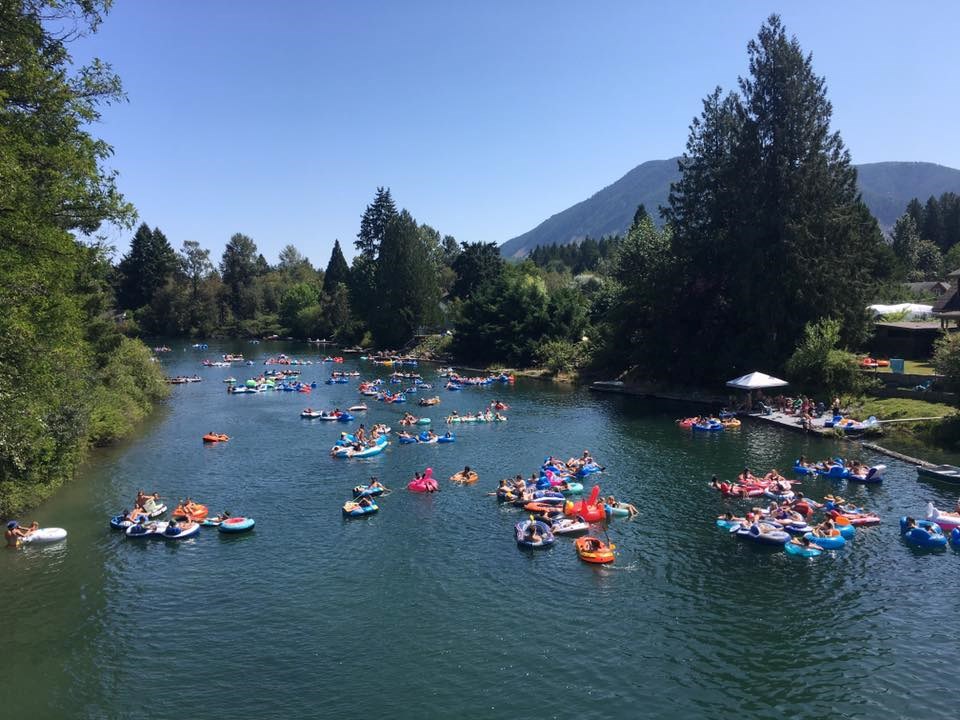Tubing on the Cowichan River will go ahead this summer after the Town of Lake Cowichan reversed a decision to restrict the popular activity.
In late April, the municipality decided not to issue business licences to two tubing companies due to COVID-19 concerns, said Acting Mayor Tim McGonigle.
“Our intent was to discourage tubing under the stage one numbers that public health officials had recommended that no larger groups than 10 [gather],” McGonigle said.
Last week, Aaron Frisby, who owns the Tube Shack, submitted a reopening plan to council, which prompted council to ask WorkSafe B.C. which phase of the province’s reopening tubing would fall into.
When WorkSafe determined tubing fit into Phase 2, Frisby worked to address council’s comments on his plan. The Tube Shack will open on June 27, in time for its regular season.
A second company, Orka, has decided not to submit a reopening plan, McGonigle said.
He asked visitors to the Town of Lake Cowichan to understand the area has limited medical infrastructure and to practise physical distancing.
About 20,000 people float down the river each year, although not every tuber is a customer of the company, said Frisby, whose company supplies tubes, river-safe sunscreen and transportation between the end point near Little Beach and the starting point, about 3.5 kilometres away.
The whole journey takes about two and a half hours, Frisby said.
The company’s COVID-19 operational plan limits the number of tubers in a half-hour period to 20 people to avoid crowding, and all bookings will be made online to minimize interactions between customers and staff.
They will also cut the capacity of their shuttles in half, from 24 to 12 to support physical distancing.
Frisby said he worries that reducing the number of people they can serve means more people will turn to tubing on their own, which could mean congested parking lots at Little Beach and tubes used for a single trip and then tossed out.
“That’s kind of why we exist,” Frisby said.
Trevor Paterson, leader for Cowichan Search and Rescue’s swiftwater team, which responds to incidents on the river, said he supports the move, because people are less likely to get into trouble if they tube with a company.
“When people tube from the Town of Lake Cowichan down to Little Beach where those companies are, that’s the very safest part of the river. So, my concern is if they had to shut down, would they go farther down the river where it’s more dangerous,” he said.
Paterson said his team responds to at least one accident on the river each summer and there have been deaths.
He’s concerned about the increased risk to search-and-rescue teams during the pandemic and urged people to stick to areas of the river they’re familiar with.
“There are places on the Cowichan River where you can have low water that are very dangerous, mainly the canyon area from Skutz Falls down is very dangerous,” he said.
Paterson recommends wearing a personal flotation device, staying sober on the water and wearing old running shoes in case something goes wrong.
“People have cut their feet, injured themselves, and also you have more traction, because there’s a lot of rocks in the river that are very slippery,” he said.



